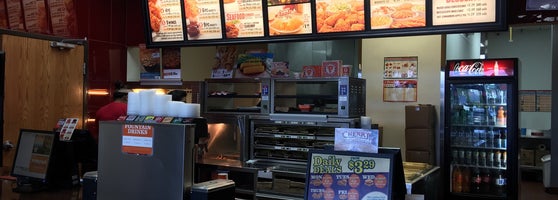

Then prioritize those items by importance and get to work. Try making a list of things you need to do in the next few months. Anticipating needs and problems, and being proactive in the management of these issues, can go a long way toward keeping stress and chaos at bay. In order to perform at your best, it’s important to plan ahead. This will help employees stay grounded when everything else changes. Keep communication lines open and be consistent with your expectations. You provide the stability your employees need to perform at their best. This can wear away at employee efficiency because they have no idea what to expect from day to day. One day can differ from the next, which can differ from the next. The restaurant business can be notoriously inconsistent. Be A Model Of Stability For Your Employees

And don’t forget to provide positive encouragement when appropriate.ģ. During work hours, keep in constant communication with employees so you know what’s going on. If you aren’t already, conduct regular staff meetings to keep employees up to date on the business. If you can foster transparency with your employees, they will feel more a part of your team and be engaged and motivated to perform at the highest levels. This stems from the younger generation’s need to feel connected and part of something larger. Millennial employees, in particular, want to know what’s going on and what you’re doing in the restaurant. Transparency is an important aspect of restaurant management in the 21st century. That passion can fuel your positive attitude, which can make all aspects of the business better. Of course you’ll feel irritable and grouchy from time to time, but try to remember the passion that brought you to this job in the first place. Work on keeping a positive attitude at all times come what may. This, in turn, colors their dining experience in a bad way. A negative attitude on your part can trickle down through the employees and seep into your guests. Your positive attitude-or lack thereof-can dramatically affect the mood of the entire restaurant…customers included.

This article will consider 15 restaurant management tips that can get you on the path to managerial success. If we do that, everything around us will improve as well. So instead of looking for ways to improve the business, let’s look for ways to improve ourselves and our management style. That’s because everything you do affects some aspect of the restaurant-from the food quality to the atmosphere to the employee demeanor. Working on yourself is as important as, if not more important than, working on the operations of the business. But what about you-the manager-who dictates those day-to-day operations? Could you use some tips to help you manage better? Of course you could. You might still find a long wait, too, as people opt to dine out after a long day right after the weekend.Restaurant management tips often deal with ways to streamline the day-to-day operations of the restaurant itself.

The first food delivery of the week for many restaurants is actually Tuesday, so you'll be eating food that isn't as fresh as you may hope. Mondays, a dreaded day for many people, is actually the worst day of the week to eat at a chain restaurant. Looking for more helpful tips? Your ultimate restaurant and supermarket survival guide is here! With that in mind, which day of the week should you always steer clear of chain restaurants? Also, restaurants often get deliveries of fresh products on Thursdays and/or Fridays in preparation for a busy weekend.Īs such, your food will likely be better prepared and fresher if you dine on the weekend, although you might have to wait a bit longer to be seated and you'll likely miss out on savings like happy hour and lunch specials, as these are often weekday promotions to lure in more business. But as it turns out, because weekends are so busy, many restaurants keep an all-star team ready to handle the rush. Weekends are typically the busiest time for restaurants, which might make you think Saturday or Sunday is the worst day to dine out.


 0 kommentar(er)
0 kommentar(er)
